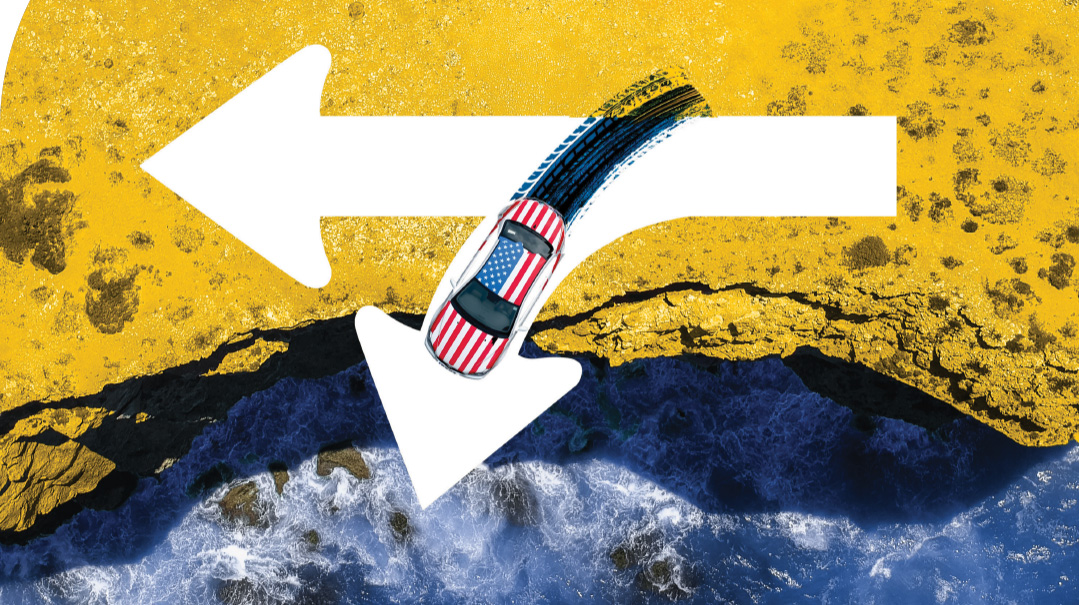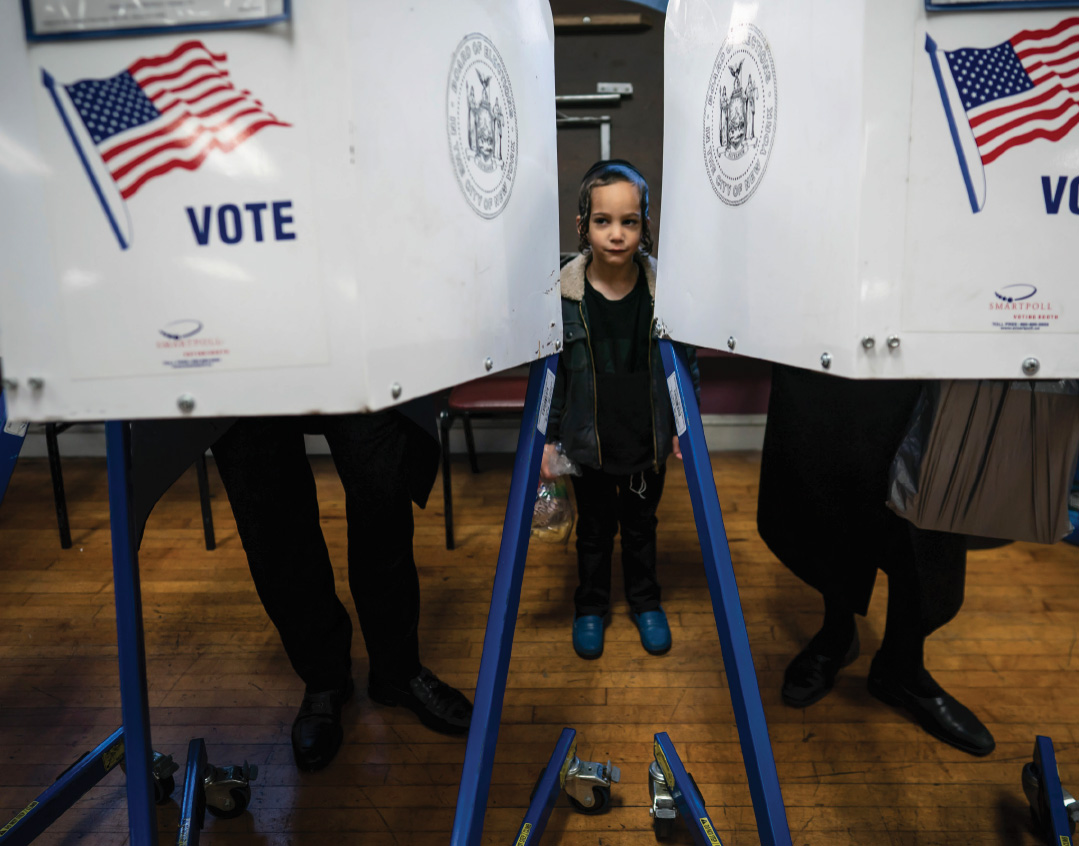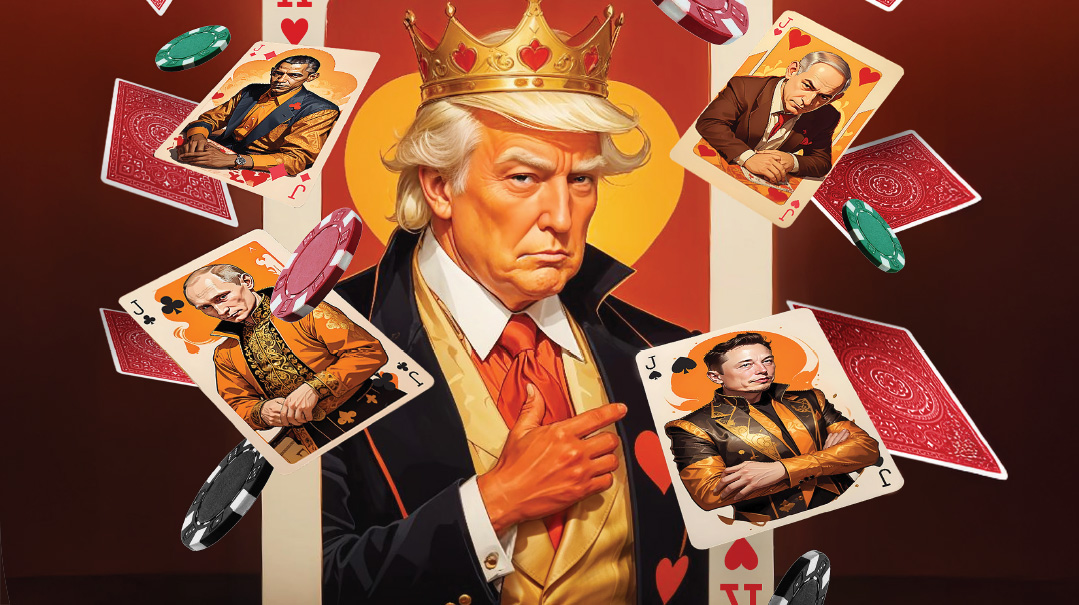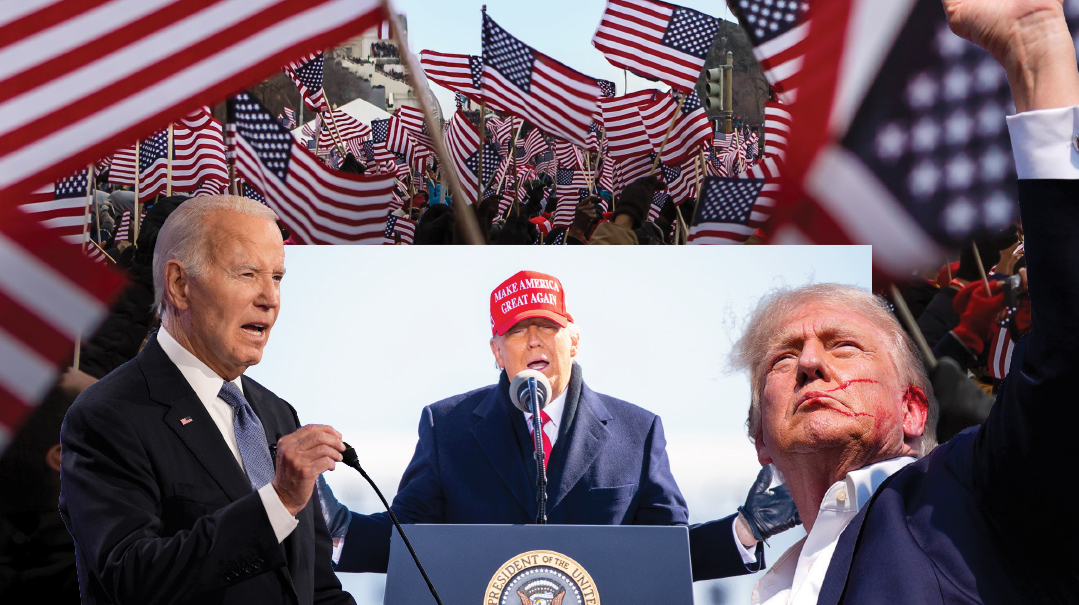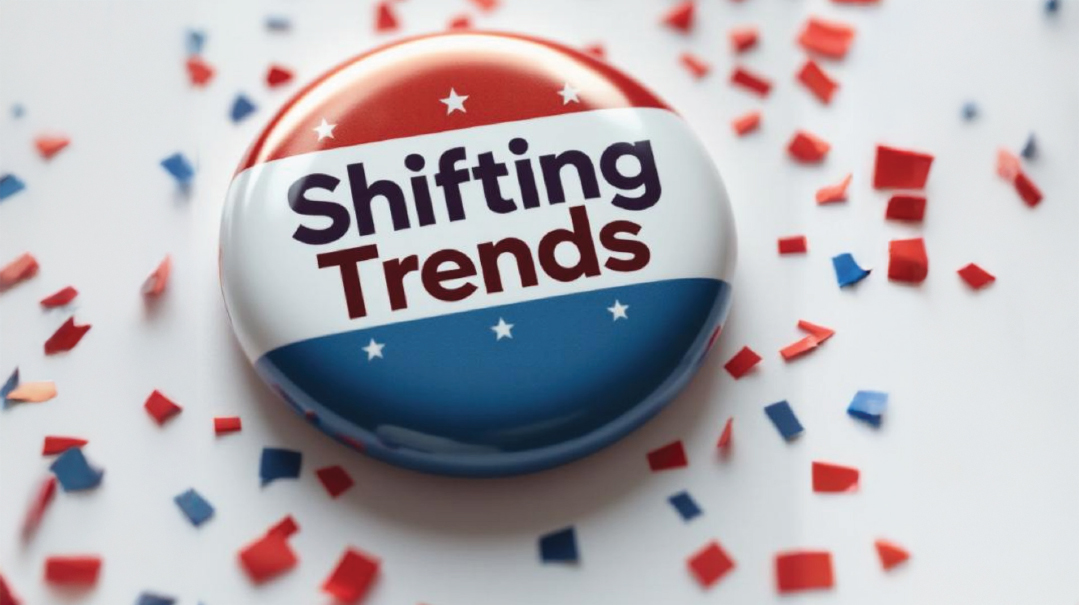Trump the Transformer

How dramatically and fundamentally Trump reshaped America
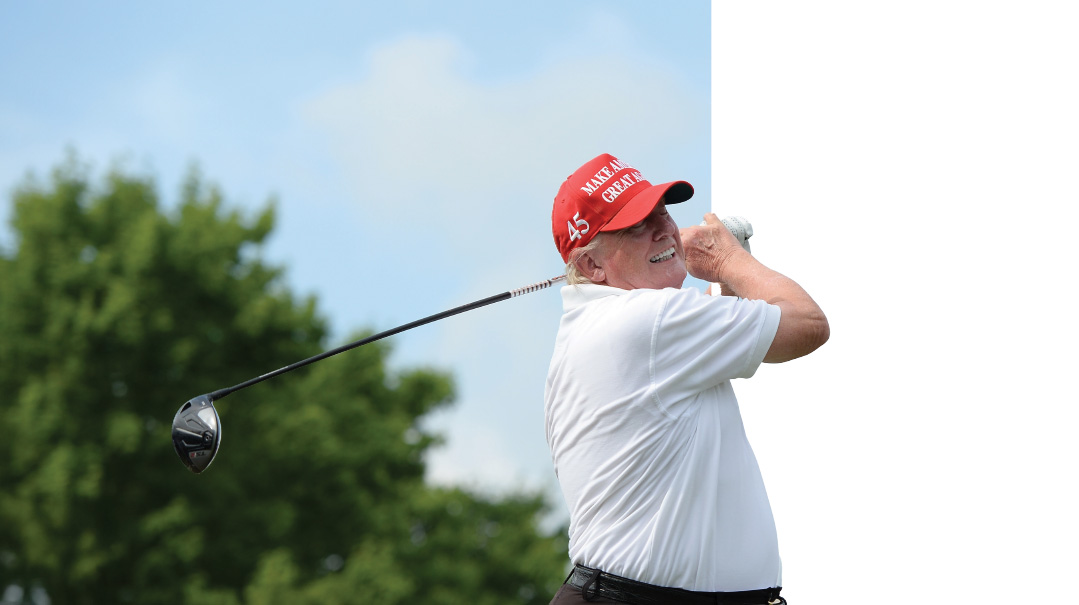
Golf courses of the world, hold your horses. Granted four more years, Donald Trump won’t be retiring to the verdant links anytime soon. But as he takes his seat behind the Resolute desk again, it’s worth pondering how dramatically and fundamentally he reshaped America — a change that four years of a Biden term could not overcome.
T
his is not a mere thought exercise. It’s the key to understanding the current state of politics. Because Trump is that ultrarare thing: a US president who is truly era-defining, who shapes the times as much as he’s a victim of them. Such is the force field of his political presence that he exerts influence both in office and out.
For ten years, he’s been the fulcrum of US politics: the leader to whose tune all others have danced, the initiator to whom all others react. He’s reshaped what it means to be a Republican and driven Democrats to a decade-long tizzy, their every calculus reduced to how to dislodge the Donald.
Even when that era of total dominance ends, the 45th and 47th president will go down in history as Trump the Transformer — the man who single-handedly triggered realignments across politics, the economy and foreign policy.
MAGA Mania
Given their mutual loathing, Donald Trump and Barack Obama make an unlikely pair. But they belong together — two leaders who triggered a realignment in their own parties. Had it not been for Obama taking the Democrats sharply to the left, transforming them into a party far more concerned with identity politics than the fate of the white working class, it’s questionable whether Trumpism would have risen at all. The GOP would likely have continued to wallow in legacy-Reaganism, giving birth to movements like the budget-balancing Tea Party. But when Trump took his (much-mythologized) ride down the Trump Tower elevator, he triggered a political realignment of his own.
The Republicans went from being the party of big business to the party of the blue-collar. A New York Times/Siena College poll in October found that 64 percent of white voters without a college degree supported Donald Trump. In parallel, Democrats increasingly own the white college-educated vote, such that education is now the dominant fault line in American politics.
The inversion didn’t start with Trump. It’s tied to the steady rise in the political importance of the culture wars. But Trump identified the space to reinvent the Republicans, and closed the deal with signature ruthlessness.
Such is the scale of the metamorphosis that it’s impossible to imagine a figure like Mitt Romney — corporate, centrist, and old guard — heading the party in the foreseeable future, as he did back in 2012. Instead, it’ll be various shades of MAGA in the post-Trump world — the only question being whether it will be MAGA with the mania, or without.
Burying Reagan
On a related note, when was the last time you heard a major American politician evangelizing for a free trade agreement, or for slashing Social Security? These used to be Reaganite orthodoxy, but Donald Trump ground those policies into dust.
It’s a sign of the extent of this realignment that it’s hard to remember how appalled the establishment was when Trump first implemented his “America First” tariff regime on China. A decade on, those cries of outrage have become whimpers of protest, or choruses of approval. Democrats have no intention of rowing back on protectionism, and Republicans fall over each other in their trade-hawkery.
Instead, in an October interview with Bloomberg News, Trump spoke of massively ramping up the tariff regime, saying, “To me the most beautiful word in the dictionary is tariff.”
And while it’s true that Trump elicited nods of corporate approval for his first-term tax cuts, they weren’t matched by entitlement reform.
For 40 years, Ronald Reagan reigned supreme over the Republicans, but after a decade of Trump, it’s clear that free-trading, small government Gipperism is a thing of the past.
Foreign Policies
No lover of jargon, Donald Trump would likely find it bizarre to hear his name affixed to a pretentious term like “doctrine.” Despite that, a clear Trump Doctrine has emerged in foreign policy that has reset America’s foreign affairs playbook.
It’s disdainful of the postwar liberal world order; wary of foreign wars; and committed to unexpected aggression when acting to defend American interests.
Exhibit A when it comes to the world order is Trump’s aggressive skepticism of NATO, in which context he’s said that Russia could do whatever it wants to a NATO country that doesn’t pay its dues. That belligerence has done what no amount of Euro-Atlanticism could ever achieve: finally convince European leaders to stop mooching off America and start pulling their own weight in the alliance, with some such as Poland massively rearming.
While the Democrats under Obama spoke of a pivot to China, it was the Biden administration that put that into practice with an ambitious Pacific military alliance, called AUKUS. That’s likely because Trump had succeeded in reorienting American foreign policy toward China in the interim.
Trump’s neo-isolationism led him to sign the agreement with the Taliban that ended the Afghanistan War. The Biden administration infamously botched the withdrawal, leading to fall-of-Saigon images of American retreat, but Biden essentially followed Trump’s lead.
Trumpian skepticism about the Ukraine war has influenced large parts of the Republican Party, leading to Congress balking at stumping up the cash for the fight. Officially, Democrats remain committed to the war, but they have basically prevented Zelensky’s forces from winning — a reticence based on reading the post-Iraq War room that Trump has built.
But Trump is no peacenik. The brand of norm-busting that led him to ingratiate himself with North Korea’s Kim also led him to move the US embassy to Jerusalem and kill Iranian Revolutionary Guards leader Qassem Soleimani.
Will these policies outlast him? As is clear from the Biden administration, which effectively implemented many tenets of Trumpism, they already have. Across the board, Trump has acted to galvanize longstanding processes, and seed new ones.
So as Donald Trump postpones his retirement to the Turnberry, he’s already a Hall of Famer — if not in golf, then as a transformative president.
(Originally featured in Mishpacha, Issue 1035)
Oops! We could not locate your form.


